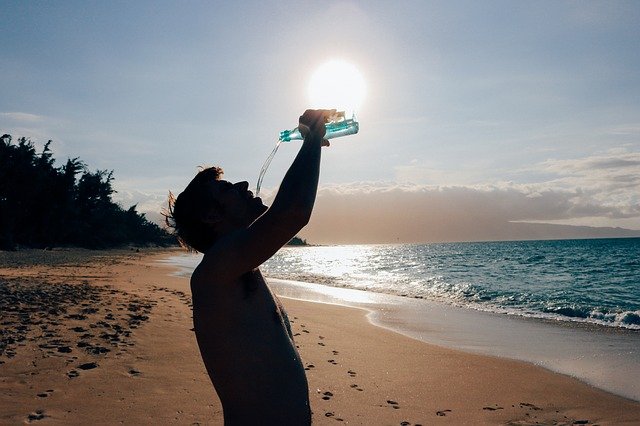Dehydrated: simple signals from the body

Dehydration should not be attributed to fever alone. Many factors affect the amount of fluid in the body – illness, stress, heat, cold, weather conditions, and even coffee. Regardless of the situation, carefully monitor the main symptoms of dehydration.
Thirst and dry mouth
The most obvious (after all, saliva is 99 percent water) but it is one of the last signs of dehydration. By the time you begin to feel dry mouth, your body has time to prepare to give up on many functions.
Fatigue and weakness
Due to a lack of fluid, motor skills and body strength begin to decrease noticeably because muscle tissue contains about 75 percent water. So it’s no surprise that when your body loses water, your muscles tire faster.
Dark urine
When nothing enters the body, it is logical that nothing comes out of it. If urination stops for more than 12 hours or occurs only in very small portions of a dark yellow color, something is wrong.
Constipation
This symptom takes a little longer for you to notice, but this uncomfortable reaction of the body suggests that it is starting to dry out. When dehydrated, water is instantly absorbed by the intestinal walls; it does not enter the feces, as a result of which they become dry and poorly pass through the intestines.
Sunken eyes and dry skin
A dehydrated body does everything it can to retain water, including taking it from the skin to replenish internal stores. As a result, the skin is primarily deprived of water and becomes dry. When your skin starts to peel off and your eye sockets look sunken, you have severe problems.
Low pressure
Blood is denser than water, but it is 83% water, and the less water circulating through the body, the less blood. Low blood pressure can be hazardous when you have other medical conditions that can make it worse.
Headache and dizziness
One of the consequences of a decrease in blood pressure is that the blood becomes less, its viscosity increases, and the vessels, including those in the brain, narrow. Severe headaches and dizziness, beginning almost immediately after getting up, indicate one of the last stages of dehydration.
Confusion and delirium
With a lack of water, the blood circulates worse, which ultimately affects the brain. A person can not only feel tired and depressed but also fall into frank delirium. This is one of the last stages of dehydration, accompanied by constant dizziness and fainting.
Rapid heartbeat and breathing
Lack of water means a lack of blood, and therefore the heart must pump faster, thereby making up for its decreased amount. Rapid heartbeat and breathing, coupled with low blood pressure, increase the likelihood of dehydration shock. In this case, immediate and qualified medical attention is needed.




